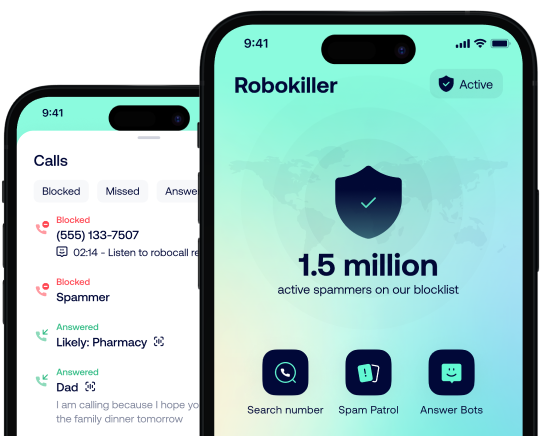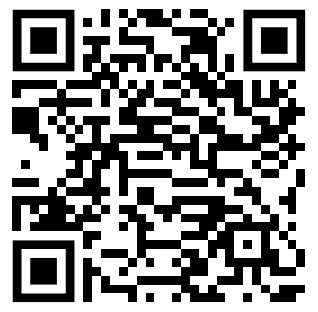Get the
Robokiller app

(888) 342-5766
Utility
Positive
User reputation
Allowed
Robokiller status
Analytics
February 25, 2026
Last call
7,930
Total calls
219
User reports
Comments 8
The comments below are user submitted reports by third parties and are not endorsed by Robokiller
See more

Fake electric/utilities "disconnection of service" or rebates/savings scam by madarchod criminals phoning from India and spoofing the actual 888-342-5766 number for PNM Resources. Automated recordings from electric companies are ONLY valid if they state power outages/restorations. All recordings that say your power will be disconnected because of an unpaid bill or that you are due a rebate are SCAMS! This scam begins with a recording that is generated using text-to-speech translation software to disguise the origin of this India scam. The recording may say: "This is a disconnection notice from your electric company. Please be aware that your electric service will be disconnected within the next 30 minutes due to non-payment on the account. Immediate action is required to avoid disconnection today." These fake service suspension scams have been adjusted for hundreds of India phone scams to say either your Verizon, AT&T, Sprint, DirecTV or cable TV, Comcast, or various electric service has been or will be disconnected/suspended unless you press 1 or call back. The India scammer tells you that your bill is overdue or your account will be suspended, and they try to steal your Social Security number, credit card number, or bank account/routing number under the pretense of verifying your account information and demanding that you pay the fake past due amount. All real disconnections of electric/gas/water, phone, Internet, and television service are always preceded by personal notices sent to you by paper mail or email that detail the exact amount that is unpaid. This India scammer also runs electric savings/rebate scams that pretend to offer savings or rebate checks where the call begins with a recording that says: "This is an apology call from your electric utility. You got overcharged by your third party supplier. You will be receiving a rebate check along with a 30% discount on your electric and gas bill. Please press 1 to get a rebate check." or "Since you have not missed any electric bill payments in the last 3 months, you are eligible for 15% discount on your bill. If you need the discount on your electric bill, press 1." Again with this fake electric savings/rebate scam, the scammer tries to steal your credit card, SSN, bank account number, and personal information. About 80% of North America scam calls come from India and 15% come from the Philippines. India scammers run hundreds of fraud, extortion, and money laundering scams every day such as posing as a fake pharmacy, fake Social Security officer saying your benefits are suspended, IRS officer collecting on fake unpaid back taxes, debt collector threatening you for fake unpaid bills, fake bank/financial/FedEx/UPS/DHL scams, pretending to offer fake health insurance, car warranty, student loan forgiveness, credit card and debt consolidation services, posing as Amazon to falsely say an unauthorized purchase was made to your credit card or your Prime membership was auto-debited from your bank, posing as Microsoft/Dell/HP/Apple to say your account has been hacked or they detected a virus on your computer, fake "we are refunding your money" or "your account has been auto-debited" scams, fake Google/Alexa listing and work-from-home scams, posing as an electric utility, Verizon, AT&T, or Comcast to say your service is suspended, fake solar panel and home purchase offers, fake fundraisers asking for donations, fake phone surveys, and the scammers try to steal your credit card, bank account/routing number, Social Security number, and personal information. A India call center may rotate through a fake Social Security, subscription auto-renewal, pharmacy, and credit card offer scam within one week. Philippines scammers focus more on Medicare and SSN/identity theft. Scammers use disposable VoIP phone numbers (e.g. MagicJack devices) or they spoof fake names and numbers on Caller ID. Anyone can use telecom software to phone with a fake CID name and number. Scammers spoof thousands of fake 8xx toll-free numbers. CID is useless with scam calls unless the scam asks you to phone them back. CID area codes are never the origin of scam calls since scams use spoofed CID numbers from across the US and Canada, numbers belonging to unsuspecting people, invalid area codes, and fake foreign country CID numbers; e.g. fake women crying "help me" emergency scams often spoof Mexico and Middle East CID numbers. Scammers often spoof the actual phone numbers of businesses such as Apple, Verizon, and banks to trick you into thinking the call is valid. How can you avoid being scammed by phone calls? NEVER trust any unsolicited caller who sells something (most unsolicited calls are scams so your odds of saving money are very poor); asks for your Social Security number; offers a free gift or reward; threatens you with arrest/lawsuit or says you need to reply back soon (pressure tactic); asks you to access a website, download a file, wire transfer money or buy prepaid debit/gift cards; claims suspicious activity on your account; says your subscription is being refunded or auto-renewed/auto-debited; and all pre-recorded messages. Recordings are far more likely to be malicious scams and not just telemarketer spam. All unsolicited callers with foreign accents, usually Indian or Filipino, are mostly scams. Filipino scammers tend to speak better English than Indian scammers. Filipinos speak English with a subtle accent having a slight trill. Scams often say that you inquired about a job, insurance, social security benefits, or that you previously contacted them or visited their website. A common India phone scam uses a fake Amazon recording about a purchase of an iPhone, but Amazon never robo-dials and Amazon account updates are emailed. Many banks use automated fraud alert calls to confirm a suspicious purchase, but always verify the number that the recording tells you to phone or just call the number printed on your credit card. Some scams ask for your credit card for purchase of their fake product or service. The scammer calls you back one day later to say their credit card machine is broken, so you must wire transfer the payment to them. After you have wired the money to them, they still overcharge your credit card after they change phone numbers, so they rob you twice before disappearing. Wire transfers and prepaid debit cards laundered through foreign bank accounts are untraceable. Scammers try to gain your trust by saying your name when they call, but their autodialer automatically displays your name or says your name in a recording when your number is dialed using phone databases that list millions of names and addresses. Scammers often call using an initial recording speaking English, Spanish, or Chinese that is easily generated using text-to-speech translation software to disguise the origin of their India phone room. Some speech synthesis software sound robotic, but others sound natural. To hide their foreign accents, some India scammers use non-Indians in their phone room. Scammers often use interactive voice response (IVR) robotic software that combines voice recognition with artificial intelligence, speaks English with American voices, and responds based on your replies. IVR calls begin with: "Hi, this is fake_name, I am a fake_job_title on a recorded line, can you hear me okay?"; or "Hi, this is fake_name, how are you doing today?"; or "Hello? (pause) Are you there?"; or "Hi, may I speak to your_name?" IVR quickly asks you a short question to elicit a yes/no reply so it hangs up if it encounters voicemail. IVR robots understand basic replies and yes/no answers. To test for IVR, ask "How is the weather over there?" since IVR cannot answer complex questions and it keeps talking if you interrupt it in mid-sentence. IVR usually transfers you to the scammer, but some scams entirely use IVR with the robot asking for your credit card or SSN. A common myth is IVR calls record you saying "yes" so scammers can authorize purchases just using your "yes" voice, but scammers need more than just a recorded "yes" from you - credit cards and SSN. Phone/email scams share two common traits: the CID name/number and the "From:" header on emails are easily faked, and the intent of scam calls is malicious just as file attachments and website links on scam emails are harmful. Scams snowball for many victims. If your personal/financial data are stolen, either by being scammed, visiting a malicious website, or by a previous data breach of a business server that stores your data, then your data gets sold by scammers on the dark web who will see you as fresh meat and prey on you even more. This is why some receive 40+ scam calls everyday while others get 0 to 2 calls per day. If you provide your personal information to a phone scammer, lured by fake 80%-discounted drugs or scared by fake IRS officers, you receive even more phone scams and identity theft can take years to repair. Most unsolicited calls are scams, often with an Indian accent. No other country is infested with pandemics of phone room sweatshops filled with criminals who belong to the lowest India caste and many are thieves and rapists who were serving jail time but released early due to prison overcrowding. Scammers often shout profanities at you. Just laugh at their abusive language. Google "Hindi swear words" and memorize some favorites, e.g. call him "Rundi Ka Bacha" (son of whore) or call her "Rundi Ki Bachi" (daughter of whore). Scammers ignore the National Do-Not-Call Registry; asking scammers to stop calling is useless. You do these scammers a favor by quickly hanging up. But you ruin their scams when you slowly drag them along on the phone call, give them fake personal and credit card data (16 random digits starting with 4 for Visa, 5 for MasterCard), ask them to speak louder and repeat what they said to waste their time and energy.
March 28, 2021
PNM
September 8, 2020
Electric
July 14, 2020
Some PNM crap
April 29, 2020
Called twice to tell me to make a payment or my electricity will be disconnected. I pay my bill on time and don’t currently owe. This is a scam.
April 19, 2020
Called a couple of rime saying they would shut my power off if I didn’t pay my bill. PNM is not my electricity provider.
January 6, 2020
Police something or another
July 31, 2019
The voice message claimed my electricity was going to be shut off. I did not recognize the company name and my bills are automatically paid. Scam.
July 23, 2019